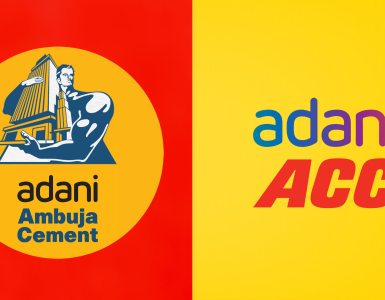Commodities regulator Forward Markets Commission (FMC) was merged with the capital markets regulator Securities and Exchange Board of India (Sebi) in September 2015. It is for the first time that a regulator had been merged. The commodities market entities would get a timeframe of up to one year to adjust to the new regulations and they will have to follow the same norms that are applicable to their peers in the equity segment.
Sebi’s whole-time member Rajeev Kumar Agarwal would oversee the commodities market regulation in the merged entity under the overall guidance of the Sebi Chairman. FMC had been regulating commodities markets since 1953, but the lack of powers has led to wild fluctuations and alleged irregularities like the NSEL scam has rocked this market in the recent past and the subsequent regulatory and government interventions in this case eventually led to the government announcing FMC’s merger with Sebi. The merger has put a death knell for the illicit ‘Dabba trading’.
The proposal to merge the Securities and Exchange Board of India (Sebi), the stock market regulator, with the Forward Markets Commission (FMC), which regulates the commodities market, was proposed by Finance Minister, Arun Jaitley in his Budget for 2015-16. This is the first major case of two regulators being merged, as against the relatively more frequent practice worldwide of creating new regulatory authorities, including by carving out new bodies from the existing entities. At present, there are three national and six regional bourses for commodity futures in the country. Together, all the exchanges clocked a turnover of nearly Rs 60 lakh crore in 2014-15, from over Rs 101 lakh crore in the previous fiscal.
The merger will enable commodity exchanges to expand in segments permitted under a stock exchange and vice-versa. The implications of the merger are significant. Stock exchanges will be able to become universal exchanges wherein equities, debt instruments and currencies are traded under the same roof as commodity derivatives. Stock exchanges have depositories and clearing corporations which will also cater to the needs of commodity traders as well.
The commodity exchange space will see consolidation and ultimately three or four players will remain on the scene, as compared to six now, including existing large stock exchanges such as the National Stock Exchange (NSE) and Bombay Stock Exchange (BSE), Multi Commodity Exchange (MCX) and National Commodity and Derivatives Exchange (NCDEX). The BSE had got Sebi approval to set up a commodity exchange. After the regulators’ merger, it can launch commodity trading as a segment of itself. The National Stock Exchange already has a stake in the NCDEX; MCX has a stake in the Metropolitan Stock Exchange (earlier MCX-SX).
The Forward Contract Regulation Act (FCRA), the Securities and Contract Regulation Act and the Sebi Act were amended to give effect to the merger. Securities Appellate Tribunal will hear all cases related to commodities as well.
Opportunities from the merger:
It will enable investment derivatives such as exchange traded funds for silver and other metals, weather and freight derivatives, and index futures and options trading in commodities. It will offer arbitrage opportunities across segments in an exchange, and make margin money fungible for trading across various asset classes like commodities, currencies, and equities. Thus, if BSE or NSE starts commodity derivatives, margin money for equities or currencies will also be available for commodities because the clearing corporation will be the same.
NCDEX is predominantly into farm commodities and has a separate subsidiary for spot trading. BSE, which has Sebi’s approval to set up a commodity exchange, need not do that or buy into an existing commodity exchange – it can simply launch a segment for commodity derivatives and save costs.
MCX, the market leader (with over 85 per cent share) that calls itself an exchange for metals and energy, has already proposed to increase its stake in MCX-SX (now Metropolitan Stock Exchange) to 15 per cent by converting the warrants it holds. MCX will have access to currency trading that is the natural hedge required for commodity traders. In the past, MCX-SX was a market leader in currency derivatives. Eventually, MCX-SX merging with MCX is also a possibility that many do not rule out.
It is hoped that with time institutional investors like banks and mutual funds will also be allowed to participate in these markets, which will increase liquidity and, therefore, price discovery, and offer more opportunities for hedgers to execute their transactions. The government is acquiring the power to define certain instruments as derivatives that will allow weather and freight derivatives. Weather derivatives could succeed in India as the vagaries of monsoon weigh heavily on the prospects for major crops. These two types of derivatives were discussed by the government a decade ago, but they were never on its priority list.
Pros & Cons of Merger:
The merger will give a significant boost to the integrity of the commodities market. FMC was dependent on the government for finances. It was short staffed and technologically constrained to regulate and monitor the markets. The merger should also mean an improvement in the overall efficiency for the market participants, including a reduction in transaction costs. All segments under one exchange will help reduce the compliance costs and will result in better utilisation of margin money.
As commodity prices have significant implications for the common man, especially in times of famine or drought, it will need to do justice with the expectations of Dalal Street. Also, it will have to manage the perception of the impact of derivative trading on the common man. It will also have to manage warehouses, conduct inspections, and standardisation to help strengthen the markets.
There could be hurdles relating to asset classes to be regulated, liaison with multiple regulators and definition of spot and futures trading. At present, Sebi regulates trading in equity, debt, and derivatives contracts on equity, debt, and foreign exchanges. Once FMC is merged into it, it will also regulate trading in commodity derivatives, but not trade in commodities.
The quality of commodity is another factor that Sebi will need to take care of when it starts regulating the commodity derivatives market. The quality of a share is the same across exchanges. However, the quality of a commodity is bound to vary from place to place. This may create problem in settlement.
The settlement process will also be challenging. In the securities market, derivatives settlement is either through cash or through delivery of shares.
Since the quality of a share delivered is uniform, the settlement is smooth. In commodities, however, the quality issue may create problems in settlement. So, how will Sebi guarantee delivery of commodities to buyers? At present, warehouses are regulated by an independent body (Warehousing Development and Regulatory Authority), so Sebi will need to liaison with another regulator for settlement in that market. One solution could be an ‘only cash settlement’ structure. But this again could fan inflationary pressures on the prices of commodities which are listed under cash settlement only.
Another problem that could emerge from the wide distinction between the definition of spot trading in the commodities market and in the securities market. In the commodities market, delivery up to 11 days from the day of trading is considered spot trading while in the securities market spot trading is settlement up to two days after the day of trading.
This Merger will streamline monitoring of commodity futures trading and the transaction processing marketplaces in India and also bring consistency in practices, regulations, and operations for exchanges, exchange members, investors and traders, and there will be a single KYC (know-your-customer processing). Overall it is a well-thought and positive move, which will help the sector and investors alike.




